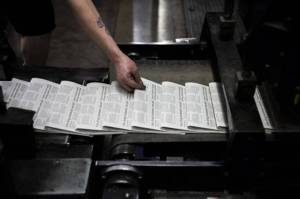Close loophole and college can be affordable
Published 2:46 pm Tuesday, February 24, 2015
If you had a child at the University of Washington at the beginning of the Great Recession, you may have been set back by the tuition. In the 2008-09 academic year it was $7,254 (in today’s dollars), almost one-fifth of a full time job paid at the median wage.
You may have thought that was bad, but as revenue for the state has imploded and failed to recover since then, the state has disinvested from public higher education. How was the difference made up? Through increased tuition. That’s why tuition is now $12,393 this year — a $5,000 increase since 2008. It also takes a bigger bite out of a smaller pay check, as median wages have fallen during this time by almost $1 an hour.
So as a result, tuition for the University of Washington now takes up almost one-third of the typical wage earner’s annual salary. That student and her family are left on their own. Their income is too high to qualify for any significant tuition assistance, and besides, there is a waiting list to get the little assistance there is.
What can we do? State Sens. John Braun, R-Centralia, and Barbara Bailey, R-Oak Harbor, have an idea. They introduced a bill to cut tuition at our four-year colleges. Now, their bill has loopholes for mandatory fees like “student activity fees.” But it goes in the right direction! They propose tying tuition to a percentage of the state’s average wage. The average wage is now $52,635 a year. (That may not make sense to you, but remember, this is not the typical wage of a middle class worker — this average is thrown off by the million dollar pay packages of the top 1 percent.)
Under their proposal, University of Washington and WSU tuition could be no more than 14 percent of the average wage — that is, $7,369. For the regional universities, like Western Washington University, tuition could not exceed 10 percent of the average wage. So instead of being almost $9,000, tuition at Western would fall to $5,264.
Braun and Bailey’s bill could do better for students at Everett Community College and all the other community colleges in our state. They propose reducing current tuition and fees of $4,000 by just $59. These community college students make up about four-fifths of the students in our public higher education system. They are typically lower income part-time workers trying to go to college, earn a living, and keep their family together. They deserve a break, too.
But let’s take this bill and ask: What’s the total cost? About $226 million. Look around the bill, turn over its pages, look in the margins, and you won’t find any funding source. Without funding, these tuition cuts are completely hypothetical. But it doesn’t have to be this way.
What could the funding source be? Our tax code is full of holes for privileged corporations. One loophole enables companies to invest (or gamble) their money in financial stocks on Wall Street and not pay any taxes on the profits that they gain. That’s a perverse loophole to start with, because it encourages companies to NOT invest in plant and equipment in our state. Why? Because the revenue they get from sales of products in Washington will be taxed, while anything they make from the money they give Chase Bank or Bank of America or Citicorp to invest is tax-free. This one loophole costs our state about $342 million.
It’s that simple. Close this tax loophole — one that encourages companies to take our money and run — and the Legislature could responsibly and permanently reduce tuition at our public colleges and universities.
Over the past decades escalating tuition has erected a higher and then even higher barrier to education for low-income and middle class students. Tuition blocks the pathway to what is supposed to be public higher education. What is a higher priority for us here in Washington: higher education for our children or Wall Street profits? We all know what that answer should be and what it can be!
John Burbank is the executive director of the Economic Opportunity Institute, www.eoionline.org. Email him at john@eoionline.org.


